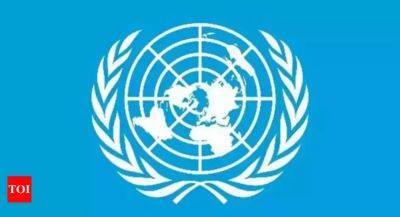OFW remittances up 3.0% to $2.95B in Feb
OVERSEAS Filipino worker (OFW) remittances rose by 3.0 percent to $2.95 billion in February from $2.86 billion a year earlier, the Bangko Sentral ng Pilipinas (BSP) reported on Monday.
Money sent home via banks alone totaled $2.65 billion, also 3.0 percent higher compared to the $2.57 billion recorded in February last year.
The rise in overall or personal remittances was attributed to land-based OFWs with contracts of a year or more and sea- and land-based workers with contracts of less than one year.
The year-on-year growths improved from the 2.7 percent recorded for both in January.
In value terms, however, personal and cash remittances in February were lower than the $3.15 billion and $2.83 billion respectively recorded a month earlier.
Year-to-date, meanwhile, personal remittances were up 2.8 percent to $6.10 billion, from $5.93 billion recorded in January-February 2023, while cash remittances also rose 2.8 percent to $5.48 billion from $5.33 billion.
February's cash remittance growth was said to be primarily due to flows from the United States, Saudi Arabia, Singapore, and the United Arab Emirates (UAE).
AdvertisementBy country source, the US accounted for the biggest share (41.4 percent), followed by Singapore (7.3 percent), Saudi Arabia (5.6 percent) and Japan (5.2 percent).
Other countries that contributed to total remittances were the United Kingdom (4.8 percent), the UAE (3.8 percent), Canada (3.2 percent), Taiwan (2.9 percent), Qatar (2.8 percent) and Malaysia (2.5 percent).
Sought for comment, Security Bank Corp. chief economist Robert Dan Roces said that decline in remittances from January suggested seasonal fluctuations as well as likely economic headwinds in Filipino host countries.
«Looking ahead, global economic conditions are expected to improve according to the IMF, which means positive employment opportunities for Filipinos abroad,» he added.
Advertisement«This also means steady growth and resilience in remittances.»
ING Manila Bank senior economist Nicholas Antonio Mapa, meanwhile, said an increase in the number of new OFWs, along with higher earnings, contributed to the year-on-year remittance growth.
«Remittances remain a stable source of FX







